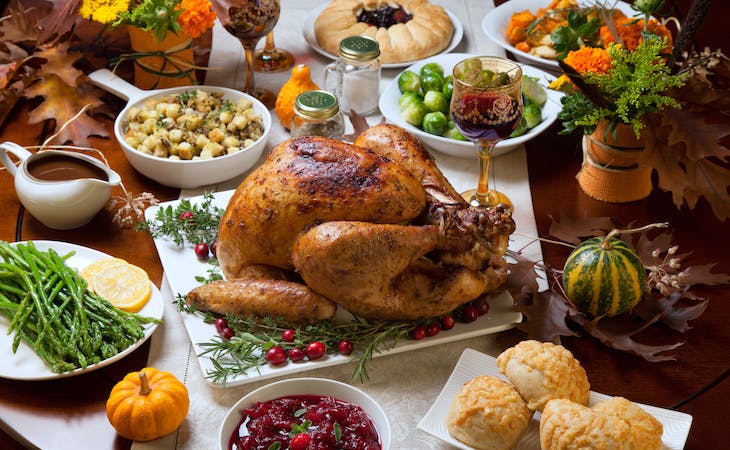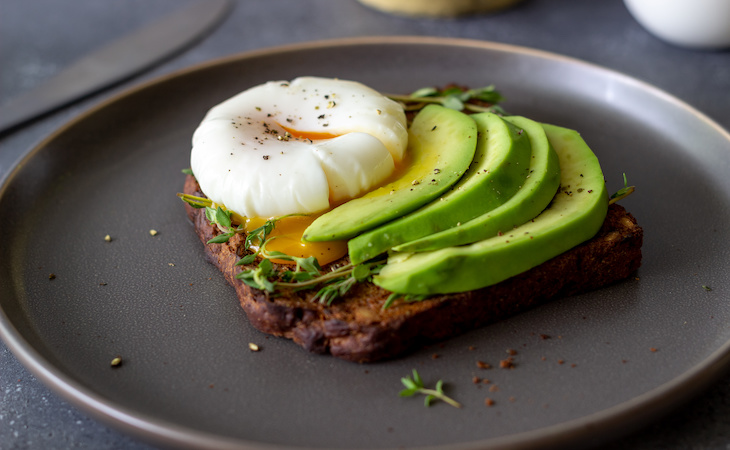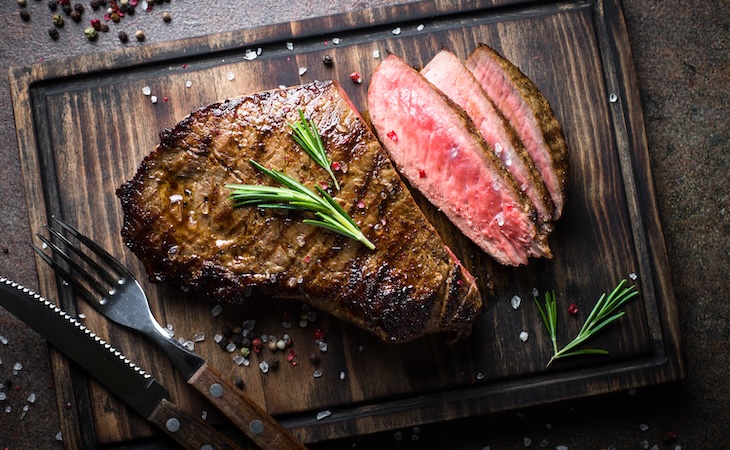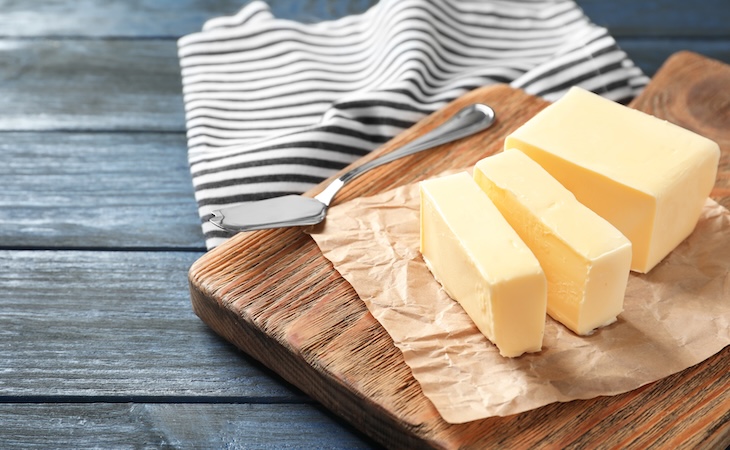Whether it’s gingerbread pancakes before opening presents, pizza and wings during the football game, or honey-glazed ham and mashed potatoes at dinner, the holiday season is all about food.
And while the holidays certainly help us take stock of our blessings, it’s undoubtedly centered around the time-honored activity of breaking bread—and entering a massive “food coma” after eating all those goodies.
Yes, food coma (also known as postprandial somnolence) is a real thing, with science to back it up. Here, learn all about this phenomenon, the foods most likely to cause it, and what you can do to prevent one this holiday season.
What is a food coma?
Before we dive into why Thanksgiving and the holidays in general are so notorious for sending you into a food coma, allow us to explain exactly what a food coma is. Generally speaking, a food coma is a sleepy or lethargic state that follows any period of intense overeating.
Some of the most common symptoms of a food coma include:
- Feeling sleepy
- Lethargy
- Stomach pain
- Bloating
- Gas
- An inability to think clearly
But there are other food-heavy days during the course of the year, so why is it that, without fail, that holidays such as Thanksgiving always manage to put you into a lethargic state by the end of the day? Let us explore.
The tryptophan myth
When the big Thanksgiving or Christmas meal is coming to a close and the fullness is just setting in, someone will inevitably declare that it’s the tryptophan in the turkey that spurs on your desire for a post-meal nap.
That statement itself is not wrong. Tryptophan is the essential amino acid precursor for the production of serotonin, a neurotransmitter that is important for good sleep in addition to overall mental health. The problem is that other proteins such as chicken and beef contain just as much tryptophan as turkey. Foods such as nuts and cheeses actually contain more tryptophan than the holiday bird.
Blame your food coma on overeating
If it’s not turkey, then is it just massive quantities of food? By and large, the answer is yes. Holiday feasts, while enticing because of their diversity of tastes, scents, and colors, are an efficient delivery system for high-carb, high-fat, and high-sugar foods.
(Here’s how sugar affects sleep.)
This spread of buttery mashed potatoes, pumpkin pie, and sweet cranberries sends signals to your brain to focus on the task at hand—digesting. That comes at the expense of other functions, chiefly staying alert.
Moreover, insulin levels shoot up after a large meal, bringing up levels of drowsiness chemicals serotonin and melatonin in the process. The net effect is that even before you put down your fork, you find your eyes drooping in hopes of a digestive snooze.
Environmental factors that lead to food coma
In addition to the numerous biological factors that influence wakefulness, such as your individual circadian rhythm, the environment plays an important role as well. Put another way, the things going on outside your body can affect whether or not you feel tired inside your body.
While this may seem obvious—we know light, for example, has a direct impact on wakefulness—what’s less obvious is how sensitive your body really is. Throughout the day you’re constantly expending energy, whether through a physical activity like walking or the core vital functions such as circulation, respiration, and digestion going on in the background. This is especially true for your brain, which uses more energy than any other human organ and can sap up with 20% of your total energy use.
Now consider the hectic nature of the holiday season: travel, preparation, and navigating new social situations to name just a few of the activities on your holiday list. Throw the changeup of a holiday schedule inclusive of altered sleep, eating times, and stress levels and all of a sudden you have the makings of a tiring day.
(Learn about 10 foods to avoid before bed.)
Should you indulge in a nap?
So while it may not be the turkey, the combination of the calorie-heavy holiday meal and the excitement and change of the holiday schedule naturally leaves your body begging for a nap. Though Thanksgiving naps are a time-honored tradition, they may impact your ability to sleep later on that night, adding to next-day lethargy.
Avoid a food coma altogether
To avoid falling into an undesired food coma, try your best to give your body a normal routine (same bedtime and wake-up time is a good start) and aim to space out your delicious Thanksgiving food throughout the day rather than downing one very filling, very tiring meal.




